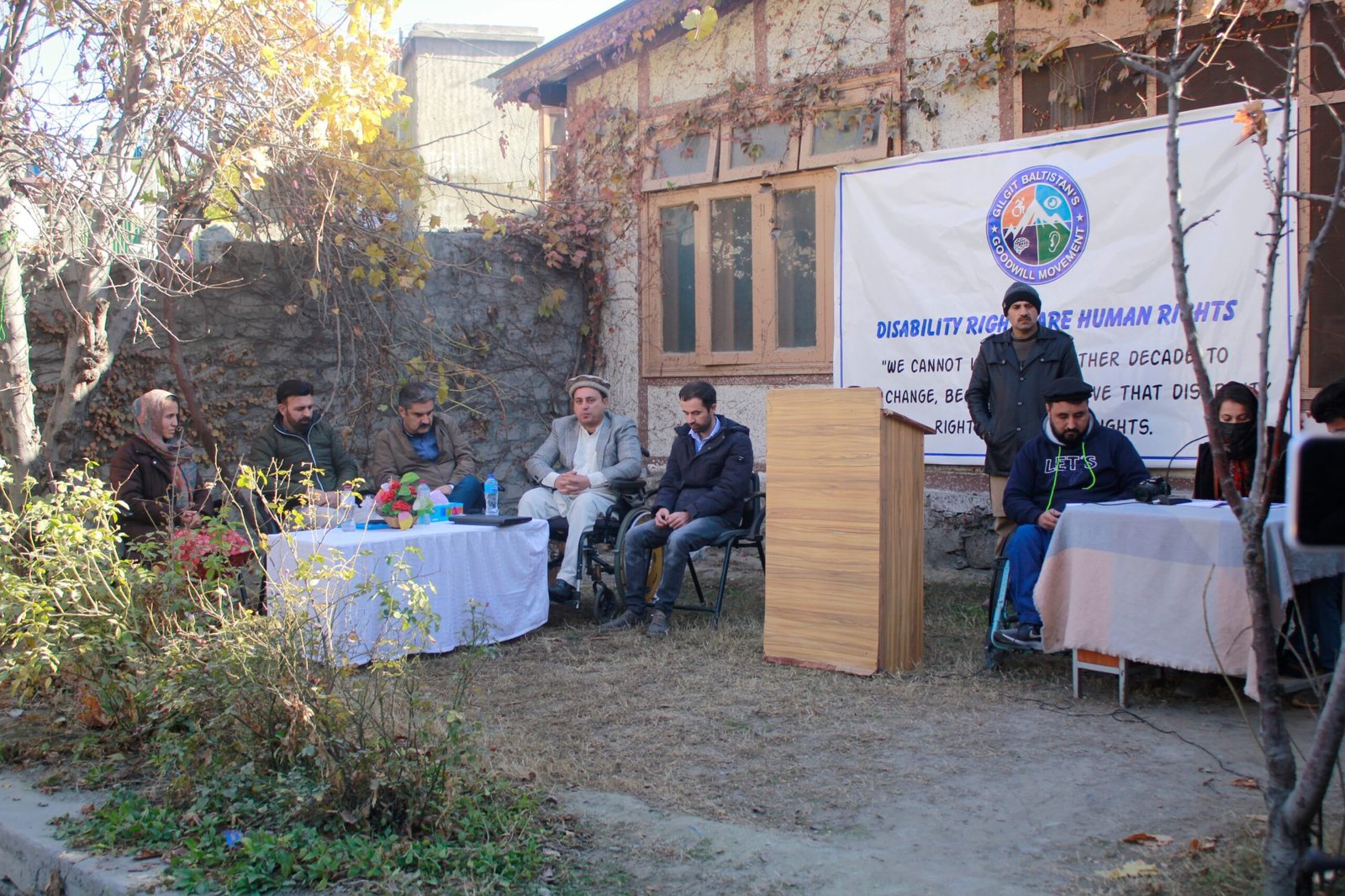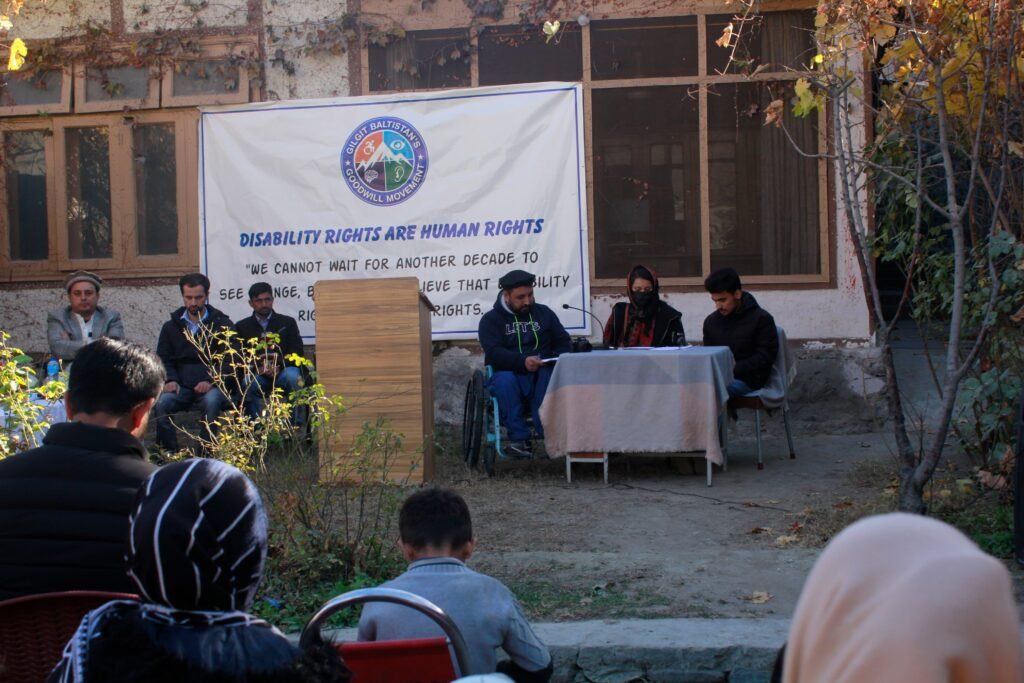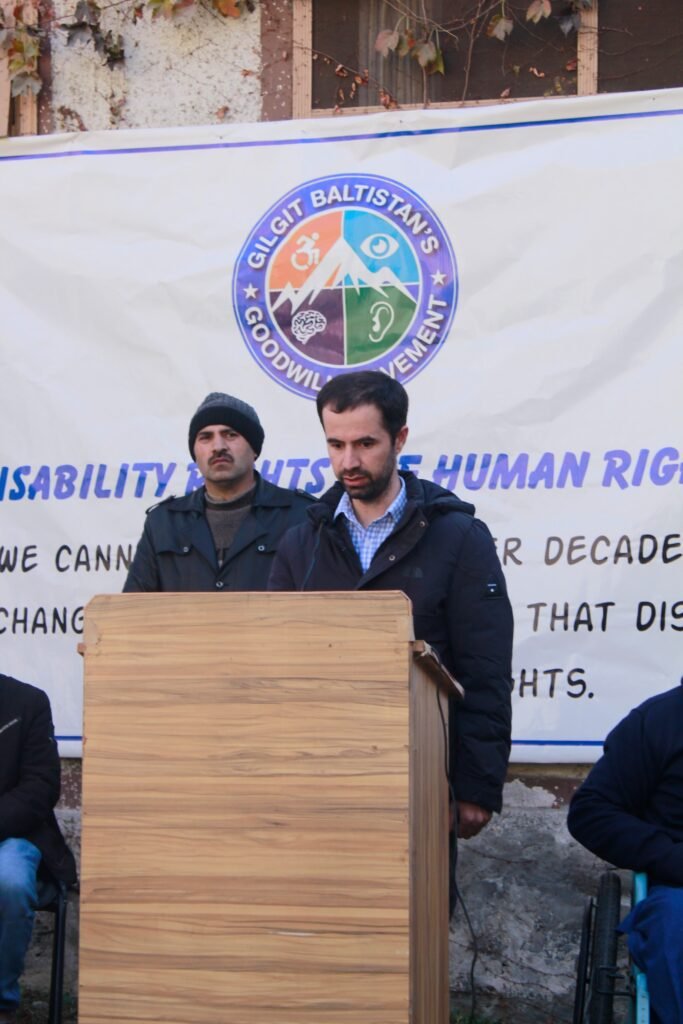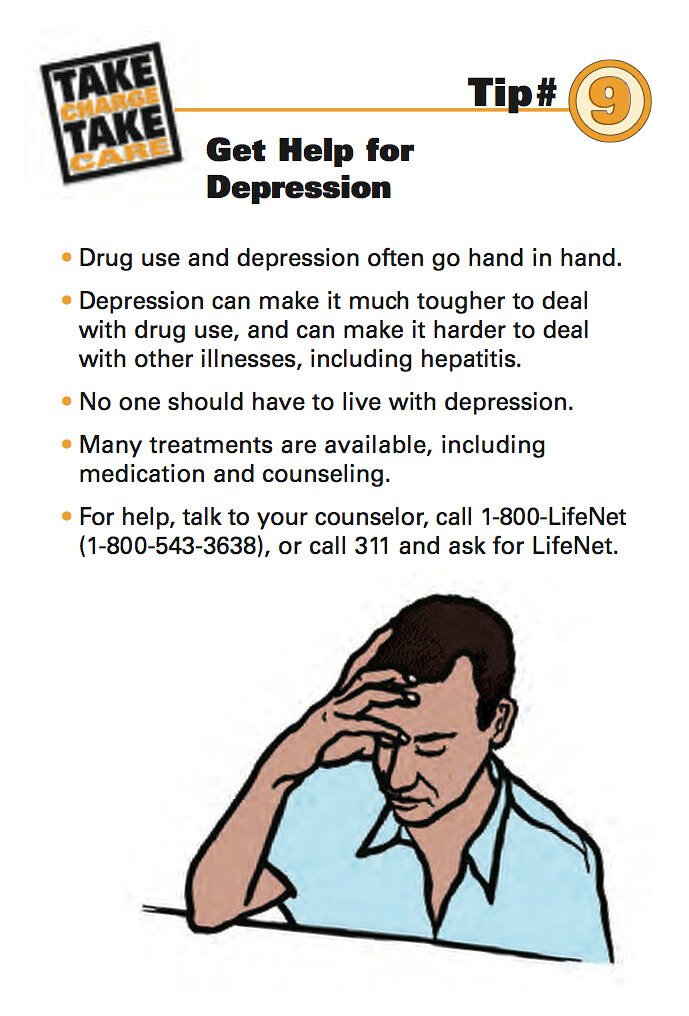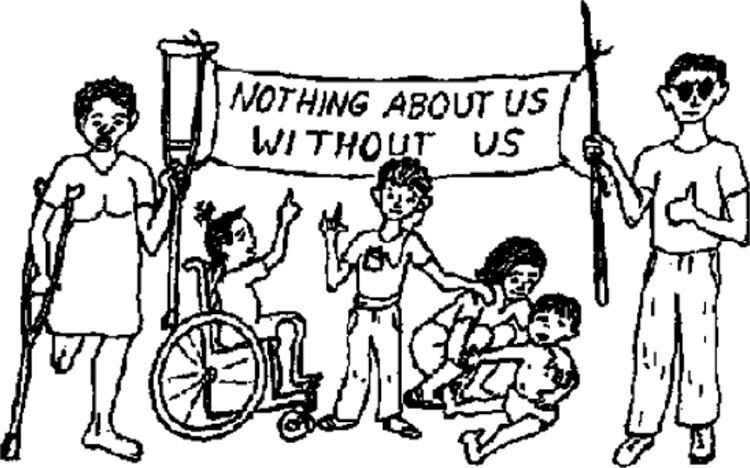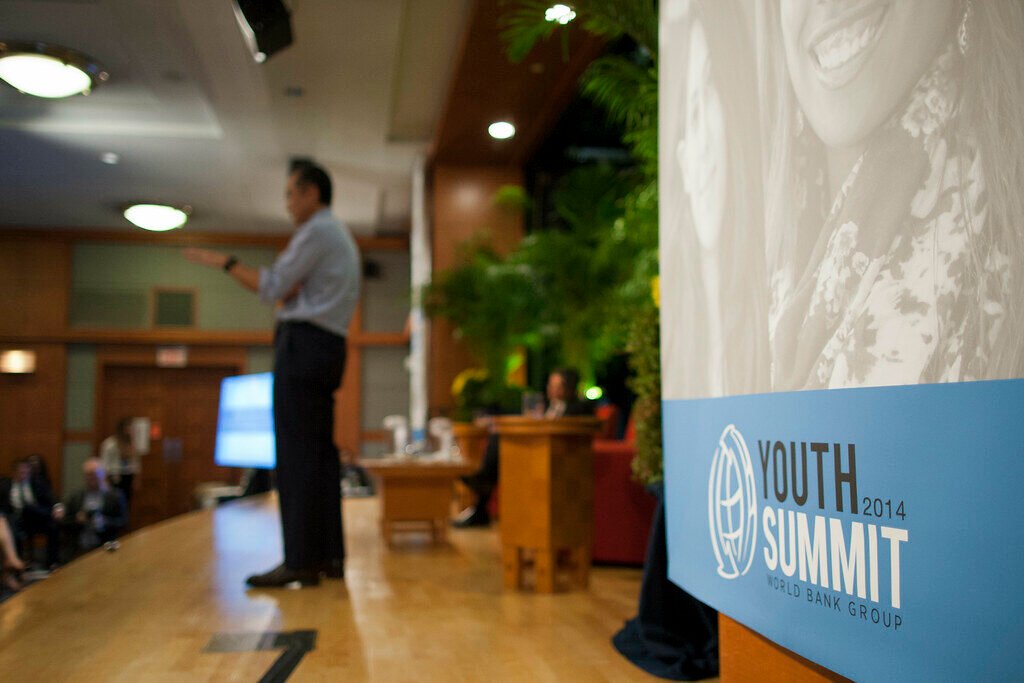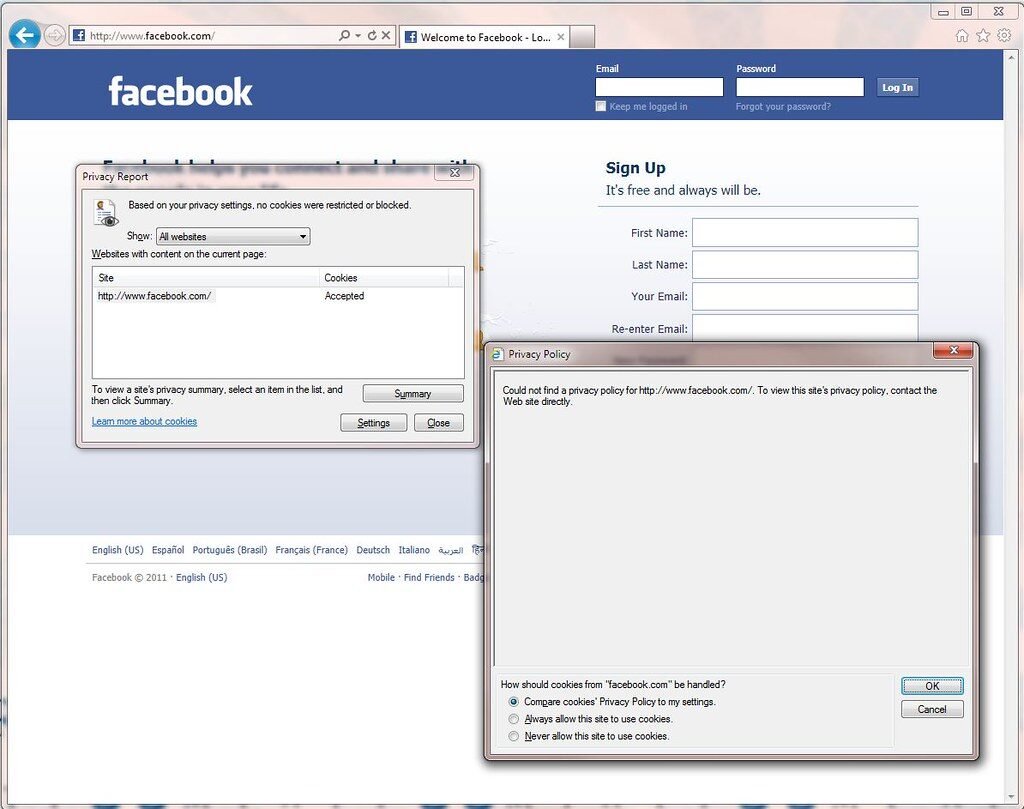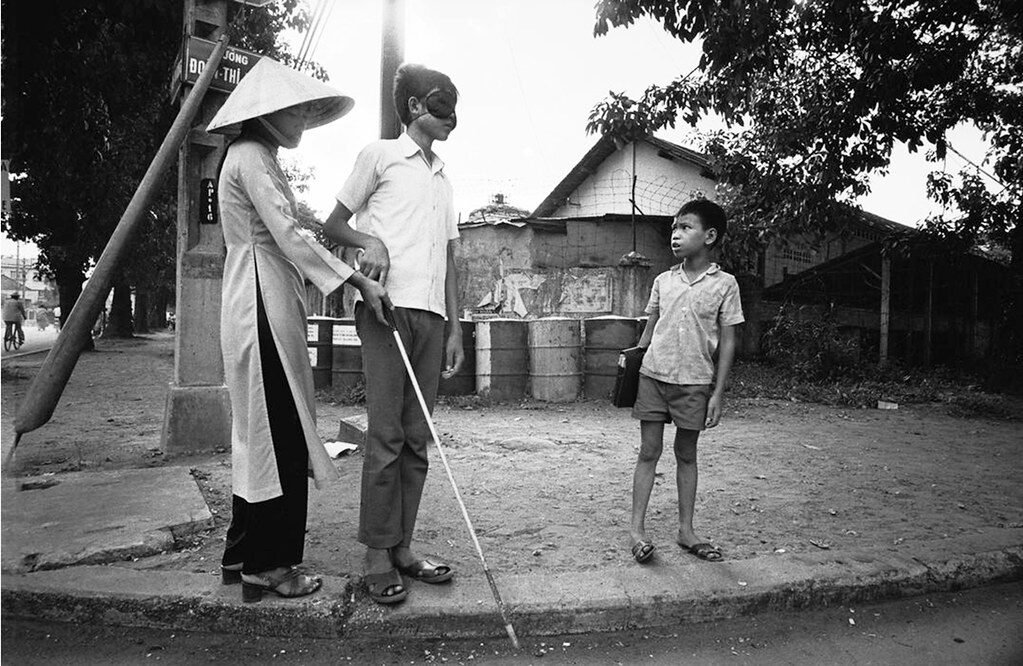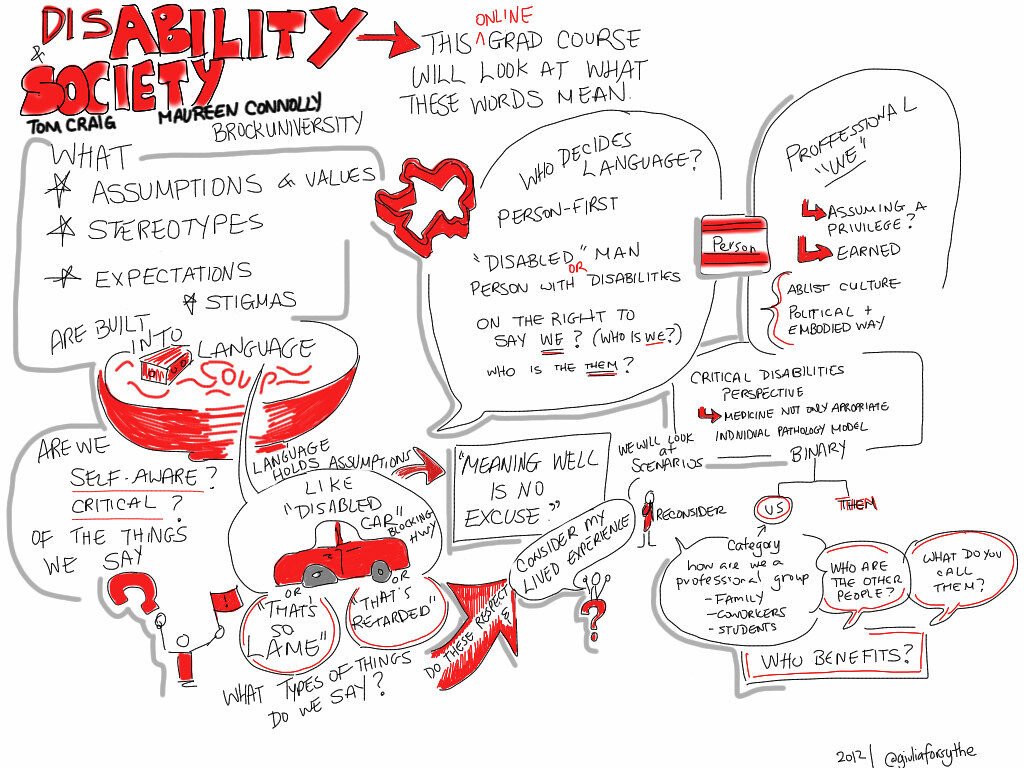Category: how to aware
Annual Reports
To view our Annual Reports, Team Goodwill has published its reports on its LinkedIn Page
Please find the necessary documents via the Documents tab on the Page.
Mental Health in a disabled person – GB context
While the Goodwill Movement has provided facts and figures, these are very basic and, to an extent, known. The last article, Society and Disability, mentioned how a disabled person’s circumstances (his family) could influence him and his community (friends, peers, etc.). However, that does not justify, in other words, adding value judgment until the self is appeased, which can lead to issues like mental health.
The disabled self
Not that one should obsess about the self, but in Pakistani, breathing rumors is freer than breathing air. Rumors often remarked at early childhood levels like: Who is he? What have they done to deserve him? This parent has done so many sins that one should expect him. [1] So one begs to differ: where is this hatred coming from? One factor is language and culture. Culture needs no further explanation, but language does. For instance, in the native language of Hunza, laagan, which has connotations of being mentally retarded is used widely in Hunza. That being said, not negatively, but words can have effects that one should know about.
We came across a story whereby a disabled person was not willing to accept their condition for a long period of their life because it would freak others out. This idea that a disabled person cannot be politically correct needs to change very rapidly as it would affect one’s mental health, cognitively, emotionally, and socially.
Way forward.
There are initiatives and incentives for mental health prevention and other schemes, include disabled people in the conversation! Otherwise negative consequences will be felt by the disabled community!
[1] * Him is used to describe an experience that most disabled men have, which is more representative of the Goodwill organization. There is no sexism intended.
Society and Disability
Introduction
Everyone has a family and community in the sense that people are connected via friendships, blood relations, and professional connections in society. I mean everyone who can talk, walk, and communicate. It is one thing to say, but it is another to implement.
When we remark that the government or the Department of Social Welfare is responsible for caring for the disabled community, it does not mean that each person is not doing it; instead, it is the talk of the whole institution (Webinar).
Detailed Governance issues
The fact that there is conflict begs to differ as to why the GB community does not respect disabled people, as it is very clearly the case. Sorry to say, but multiple factors, such as Stigma and Social Pressure, cause this issue. What is the reason that the community is scared of us? Why are there no proper R&D resources? What is going on here? Recent issue
These are good questions, but they are being asked in the wrong communities. When will there be accountability for these marginalized communities?
Otherwise this by stander effect, allows families to have unrealistic expectations or beliefs about what is considered “normal’ and may attribute disabilities to negative factors which is irrationa, immorall and unscientific
Conclusion
That is why we see families and communities adopting carefree attitudes. A political consensus can not be reached until there is a sociopolitical solution to granting Human rights, individual and social rights to persons with disablities. The state has to take care of the communities
Why are disabled people treated unequally in Gilgit Baltistan – Where are the Youths?
Gilgit Baltistan is the home of 1.5 million citizens, from Hunza to Gilgit, from Skradu to Kharamang. Gilgit Baltistan is the home of the students which have studied from the MIT’s, Harvard’s, Oxford’s but still there is a lack of social and human development.
Discussion
To limit to the disability cause, one would envisage that a scholar or a well-educate person would have by now opened further education institutes for disabled people. Not in the sense of competing with Quaid-E-Azam or NUST but an effort like the Gilgit Baltistan’s Goodwill Movement for higher educational needs. Ofcourse, there is the Mehnaz Fatima Foundation but not for older PWDs.
There is the argument that many people may not have personal experience with disabilities or may not be educated about the challenges disabled individuals face, and Some people may view disabled individuals as overly dependent or burdensome, which can lead to negative attitudes and mistreatment. Then, by that logic, the UK or the US should not have adopted the ADA Act or the Equality Act 2012 : we would all have been violating political rights then of disabled people.
It is how awareness is constructed within the family. Since Gilgit Baltistan has a traditional family mindset, culturally that is acceptable: the conclusions of Sociologist Talcott Parsons (1969) fit in trying to explain this phenomenon. He claims that human personalities are made and not born. They are created through the process of socialisation. The main agent of primary socialisation is the family.
Conclusion.
If one sticks to Parsons ‘ theory, the idea of youths being lost or disconnected boils down to the family structure. For organisations like the Gilgit Baltistan’s Goodwill Movement, it is a matter of how much we can interfere in the family system which portays disabled people in a wrongly manner.
The question of awareness is limited by this major factor.
Revised Article of Top Five Reasons to Donate to Goodwill. Policy Statement
The introduction of AI in Education and on the internet has helped individuals like myself to get some clarity. Though AI has its harms, I think it can help disabled people further their goals and spend less time worrying about things that can be resolved. To kick off this series we asked ChatGPT reasons why people do not donate to causes such as Goodwill.
From a 3rd person, one can see on our website that we help disabled people in Gilgit Baltistan through Skills Development, Advocacy Projects, or Raising Awareness. That being said, since we are reviewing analytics and trends. We regularly needed clarification on why these trends do not translate into donations on our website. Therefore, using ChatGPT is a good tool to have some clarity and, hopefully communicate it to our audience.
Findings
There are various reasons why donors may choose not to donate to charities, and it’s important to remember that individual motivations can differ. Some common reasons include:
- Financial constraints: Many people may have limited financial resources and may not be in a position to donate to charities . Donors might prioritize their own basic needs and financial stability over charitable donations.
- Lack of awareness: Some individuals may not be aware of the charitable organizations and causes that exist. They may not know where or how to donate, or they may not fully understand the impact of their donations.
- Distrust of charities: There have been instances of unethical or inefficient use of funds by certain charitable organizations, which can lead to distrust among potential donors. People may be concerned that their money won’t be used effectively or for the intended purpose.
- Skepticism about impact: Some individuals may question the effectiveness of charitable giving and wonder if their donations will actually make a difference. They may be unsure if their money will be used to address the root causes of a problem or merely provide temporary relief.
- Personal priorities: People have diverse priorities, and some may prioritize other financial goals, such as saving for education, retirement, or personal expenses, over donating to charities.
- Compassion fatigue: Constant exposure to charitable appeals and the suffering of others can lead to a sense of helplessness or compassion fatigue, making people less inclined to donate.
- Political or ideological differences: Some individuals may choose not to donate to charities because they disagree with the mission, values, or policies of certain organizations. They may prefer to support causes that align more closely with their beliefs.
- Lack of connection: People often feel more motivated to donate to causes or organizations with which they have a personal connection or experience. If they don’t have a direct connection to a particular cause, they may be less likely to donate.
- Fear of scams: There is a concern about fraudulent or deceptive charities that may exploit people’s goodwill. Some individuals may avoid donating out of fear of falling victim to a scam.
- Donor fatigue: Frequent requests for donations, especially during natural disasters or major fundraising campaigns, can lead to donor fatigue, causing people to become desensitized or overwhelmed by the sheer volume of requests.
To encourage more people to donate to charities, charitable organizations need to be essentially transparent about their operations, demonstrate the impact of their work, and build trust with potential donors. Additionally, efforts to raise awareness, educate the public, and create a connection between donors and the causes they support can help increase charitable giving.
Statement in favour of Goodwill
While ChatGPT raises issues such as Financial constraints and the Lack of Awareness, I would like to focus on the fear of Scams, Lack of Connection and Distrust Of Charities as all this is interlinked.
Nothing that has been said is wrong; one should have due diligence. Nevertheless, it is about communication skills for a charity. The website is a good starting point; our Facebook page has up-to-date posts, and our Linkedin account has up-to-date reports, what more can one need?
On top of that we are all contactable on our social media feeds.
As far as the distrust of Charities and the Fear of Scams, one would know if that was the case in our opinion we have nothing to hide. And if thats not all
Our interactive webinars show the public of what are our conditions like, and who we are as individuals?
Conclusion
ChatGPT as an tool is really useful for disabled people. Such applications clear our thoughts and how we communicate towards donors. Not every charity in Pakistan is misused.
White Cane Safety Day, and Blind/ Visually Impaired People in Gilgit Baltistan.
On Sunday, the 15th of October 2023, the world will celebrate White Cane Safety Day.
What is White Cane Safety Day?
President Johnson initiated White Cane Safety Day to remember the contributions of blind people, the visually impaired. As Lubna Hashmat rightfully points out, there are more physical disabilities, one of which is visually impaired; we must raise some awareness of these communities.
Description of the Visually Impaired
Though Gilgit Baltistan’s Goodwill Movement interacts with all forms of disabilities, our primary cohort of students has been the visually impaired, people with sight issues: why? Because we believe that the pen is mightier than the sword. Whether one has sight or not, one’s intellect is more important than this. What is the evidence: we have seen how our ableist governments, regimes, and institutions develop unequal societies, specifically in Pakistan.
Conclusion
Is this not a Human rights issue?
Many times in developing countries, we hear from Pakistan and other nations that for further development, our GDP has to be at 10%, the inflation rate has to be at 2% or something, and political victimization has to be stopped. Really? What about the constant persecution of the visually impaired – who could have been your economic asset Summary Review of PWDs & job market.
A guide for how Individuals should approach disabled people.
There are two main types of communication causes like ours use: verbal and non-verbal. Verbal communication involves using words to share information with other people define. It can, therefore, include both spoken and written communication Articles. But there comes a time within a case when we have to dissect information, evaluate, and make policies on different issues. However, when it comes to engagement, sometimes we have to be patient, but it should go the same way.
Individual engagement and disabled people
Since individuals have less time to contribute to talk to causes such as ours and are busy, we always try to accommodate them, regardless of day or night. In my experience, the causes of disabled people can be many worldwide. Still, at the same time, one should respect that when a disabled person reaches out to any individual, they are also taking time out from their studies professional or personal engagements to engage and inform you about their cause.
It’s you!
The famous World War One Quote, ‘ Your country needs you is hilarious to some, while at the same time, the overemphasis of YOU is so different for a disabled person versus a non-disabled person. Because individuals may be familiar with associating themselves in the 3rd person, disabled individuals tend to blame themselves if, because of the YOU factor, causes are let down, or individuals do not want to engage.
Simply saying that it’s you scares disabled people, sometimes you need to explain more.
Human emotions are different.
Due to this YOU principle, disabled people, if not scared, tend to isolate themselves, which is not suitable for their mental health.
Conclusion
Individuals should try and be a bit more mindful towards disabled people. Giving them a more straightforward explanation often works better than not giving them any notice or explanation.
Disconnected from the Economy. The Economic Burden.
In an economy like Pakistan, all economic resources must be pooled to stabilize the financial system. An economy dictates how a country will progress, rather than the slogans of Karl Marx or other socialist parties. We saw how Russia under Lenin fell and then under Stalin became a failed system. Without discussing greater political history, this war between ‘ ableism and disabled,’ a much more significant loss, is felt by the disabled community every day and every month of the week.
An earlier article on this website that reviewed evidence showed Persons with Disablities can benefit the economy. It also opposed Marx’s ideas of being an Ideal Man suited for work. Lit Review: Nonetheless, there was no follow-up after that because it was understood that this was important, the rights for PWDs in all forms of employment. However, now, it is a wake-up call for all private and governmental agencies to employ Persons with Disablities in Gilgit Baltistan.
Economic analysis for Persons with Disablities (updated September 2023)
Using the British Council 2014 lens, Pakistan’s economic Growth Rate is predicted to be at . 22% [1] as BC showed in 2014 that Pakistan could lose 6.3% of its GDP due to the exclusion of persons with disabilities (PwDs). So what does this indicate? Firstly, it shows that Pakistanis [2] are not interested in accommodating PWDs. Secondly, it shows that there has to be serious dialogue for employing a disabled person. Remember, if you are employing a disabled person, it can open different avenues and revenue generation schemes.
Conclusion
Without including Persons with Disablities in Gilgit Baltistan, one can not boost the economy, as shown by the British Council Data.
[1] Reuters probably have not considered the British Council data.
[2] In this context, referring to the Pakistani government
Conversing with Disabled Individuals.
We saw this LinkedIn Post about how people are said to be uncomfortable with disability. Rivera’s post and what was written in it reflected, if not all, the lives of disabled people in Gilgit Baltistan, Pakistan, and the World. Social media has not shown the difficulties of disabled people as it should.
Ableist Clickbaiting versus Disableist Seeking Rights?
We have often had to implement specific social media marketing tactics that were not our choice but society’s demands. Though we can not say that content creators do not have a right to clickbait, in our context, so much clickbait reinforces stereotypes that do not represent us.
The Psychology behind Conformity informs us that people, whether in Rome, Islamabad, or Gilgit, have been forced to think that disabled people can not do anything, can not achieve anything and are a burden on society ( which is very untrue) home.
Just because the Goodwill team reports on facts rather than distorted facts, it somehow gets lost in the Worldwide Web, which should not be the case. To put it simply, in an ideal world, content creators should be discussing these issues rather than fashion
Conclusion
Real-life issues should be discussed on social media, including Persons with Disablities. Much of the content on our website will come last, as much of the social media is clickbait. The issues discussed here are significant and foremost, as they dictate people’s livelihoods and opportunities within a society. People should view the stories as a glimpse of what reality means for disabled people of Gilgit Baltistan and other countries that our stories cover.
By putting fashion icons first, it seems that humans do not want to converse with disabled people on how an ableist has impacted their lives:
- Environment
- Culture
- Language
- The Social Make-up of Society


